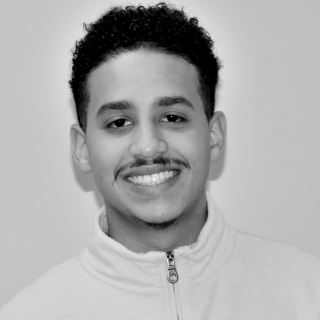
Young people combat mental health issues with hope, research shows
Anxiety over an uncertain future grows in the U.S., but younger generations believe in a better world.
A recent study conducted by the United Nations Children's Fund (UNICEF) found that young people’s mental health worsened throughout the pandemic, but some remain hopeful.
The study, officially called The Changing Childhood Project, surveyed more than 22,000 people in 21 countries with data collection led by Gallup. The project, held from January to June 2021, compared age groups of 15-24 and 40+ on their global outlook.
Younger generations today say they are overwhelmed by pressure to succeed, more than their parents felt at their age. From the countries surveyed, 17 out of 21 all had similar findings.
However, young people are not the only ones to believe that times are difficult, as more parents feel concerned for their kids' futures, the report says.
With added pressure on their shoulders, younger generations reported an increase in anxiety and depression for the first time since 2020. The project found that more than one-third or 36% of 15 to 24-year-olds often feel worried, stressed, or nervous about the future.
The COVID-19 pandemic has led some to believe the future is uncertain and that it's difficult to hold onto expectations as the world changes fast.
UNICEF’s report also showed the battle against mental health largely varied by geography, as wealthy nations like Spain, the U.S., and France had the most anxiety and depression reported.
Interestingly though, some young people say they believe the world is becoming a “better place” with each new generation. In the U.S., that gap continues to widen as 67% of youth say the world is improving, while 35% of older adults say it is worsening.
Laurence Chandy, director at the Office of Global Insight and Policy at UNICEF, says despite growing mental health concerns, young people have high optimism.
RELATED CONTENT
"In the West, there’s this idea that young people today are overwhelmed with all the bad things happening in the world and there's this sense of doom and gloom – we find that they're quite optimistic," said Chandy.
As part of efforts to aid mental health patients and expand suicide prevention services, the National Suicide Prevention Lifeline plans to launch its new emergency dial on July 16.
In 2021, the Federal Communications Commission (FCC) approved the use of ‘9-8-8’ as an emergency hotline to connect to the National Suicide Prevention Lifeline number, 800-273-8255 (TALK).
The crisis center expansion program as part of the National Suicide Hotline Designation Act, hopes to create increased rapid response and local resources for mental health patients.
Calls are expected to be accompanied by a small monthly fee of 24 cents per line user, and will increase to 40 cents in Jan. 2023, to cover program costs.
Yet, states around the country express concern over limited call center capacity, and that they may not be ready to meet the July deadline. Callers who use the hotline this summer may face longer wait times than usual.
Pennsylvania received $340,000 in funding to go towards “infrastructure development” for mental health assistance. A total of 13 crisis call centers have been preparing for the launch of a 988 hotline.











LEAVE A COMMENT:
Join the discussion! Leave a comment.